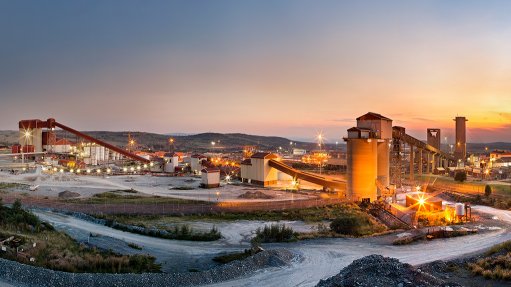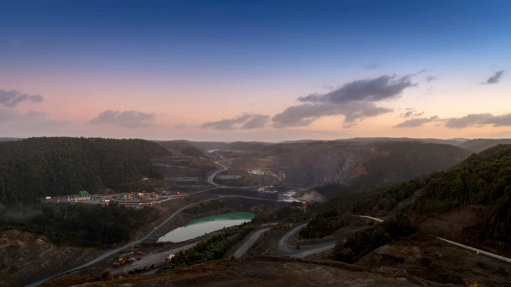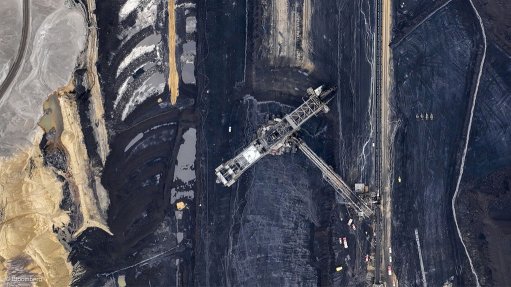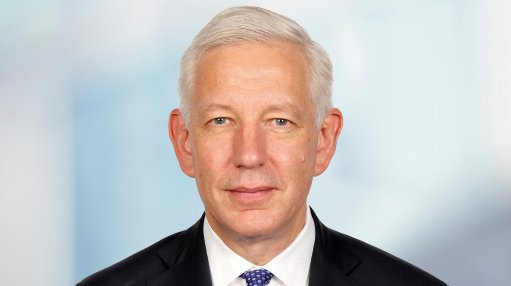Still demand for education in mining

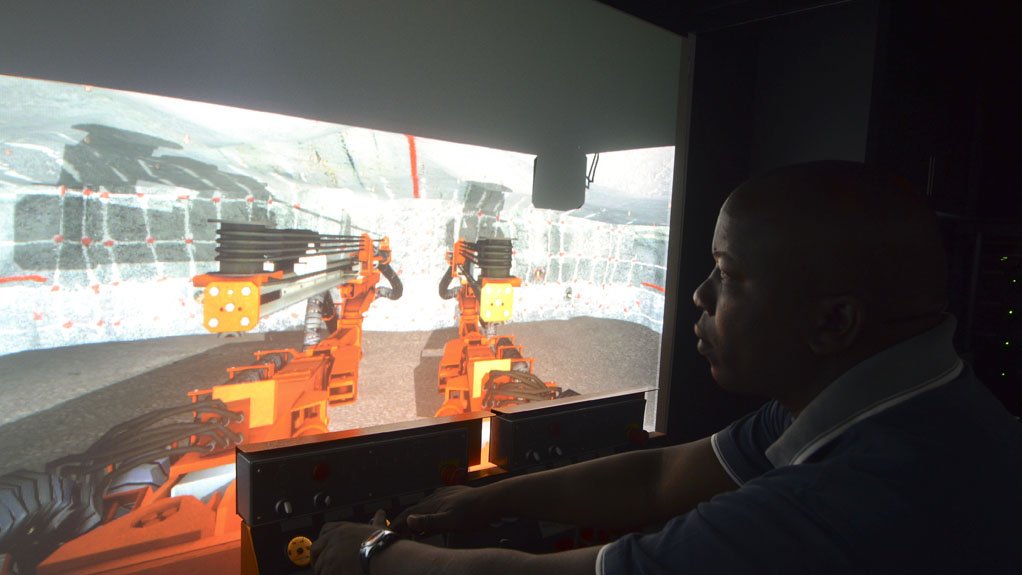
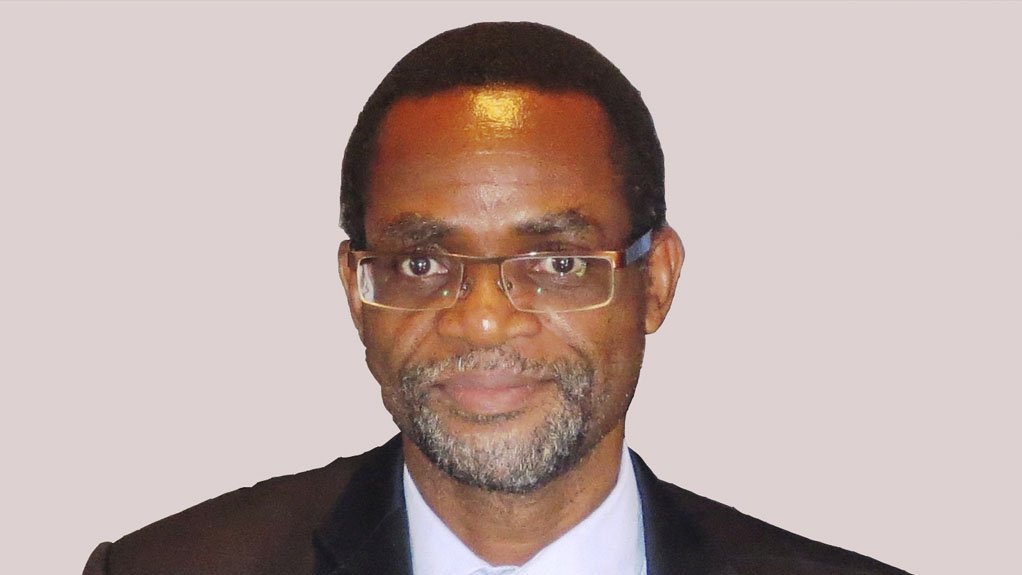
BEING TAUGHT EFFECTIVELY A range of simulated facilities have been installed at Wits School of Mining to keep abreast of the latest technological advancements
CUTHBERT MUSINGWINI The University of the Witwatersrand aims to become a leading research-intensive university, firmly embedded in the world’s top 100 universities by 2022
There is still demand for mining education, the School of Mining Engineering at the University of the Witwatersrand (Wits) tells Mining Weekly, noting that this is demonstrated by the increase in first-year admissions from 103 students in 2005 to 234 students in 2015.
Wits School of Mining Engineering head Professor Cuthbert Musingwini asserts that women have also shown interest, which is encouraging, with women currently comprising about one-third of students studying mining engineering.
With about 850 students and 25 academic staff this year, the “Wits School of Mining Engineering remains the largest mining school in the English-speaking world”, he says.
Musingwini notes that, in line with the ‘Wits Vision 2022’, the school aims to help Wits become a leading research-intensive university, firmly embedded in the world’s top 100 universities by 2022. “Our five-point strategy to help the university achieve this vision is built on years of progress that have already brought us recognition from academic peers, students and the companies . . . [of] the global mining industry.”
For example, British-based education and study-abroad specialist Quacquarelli Symonds’s World University Rankings by field of study for 2016, ranked Wits’s mining engineering in the Top 100 of 403 mining and mineral schools worldwide, and first in South Africa. Musingwini says the school has started delivering on the five strategic initiatives identified in 2015.
To keep abreast of the latest technological advancements and trends in the mining sector, and promote Wits Vision 2022, the school believes in simulating various aspects of a mining operation in its learning environment to enable students to experience and visualise what they are being taught much more effectively.
Wits has been addressing this need by working with partners like South African gold miner Gold Fields, construction and infrastructure company Aveng, South Africa-focused gold producer Sibanye Gold and mining equipment supplier New Concept Mining. A range of simulated facilities have already been installed.
These include a life-size mining stope panel, a mock mine tunnel, mine shaft steel work and a lamp room, which all form part of the digital mine environment and provide invaluable tools for learning and research, emphasises Musingwini.
“As a mining school, we are advancing research in digital technologies, often working with equipment suppliers to improve their offerings, and with mines to test and adapt the application of these advancements.”
He highlights that best-practice innovations and technology offer the opportunity for the design and management of high-technology mines that are not only safer but also more productive, environment friendly and socially responsible while being economically successful.
Challenges
Although there is a growing need for well-trained scientists and engineers to conduct fundamental and applied research to tackle the mining sector’s myriad of challenges, the sector requires novel and practical solutions to improve the cost competitiveness of operations and provide it with greater sustainability into the future.
Musingwini says the South African mining industry has not been spared the effects of the global financial crisis from mid-2008, adding that the economic downturn negatively impacted on the funding available for education and training.
Further, the attrition rate among students in mining and related disciplines is high, owing to various factors, including under-preparedness of several students when they enrol at university, he notes. Even when qualified, many students are lost to the sector as they pursue options in other industries, Musingwini adds.
Consequently, this not only affects the skills available to mines and mining companies but also reduces the opportunity for these students to develop their knowledge into much-needed postgraduate research that could benefit the whole industry.
Wits aims to mitigate these challenges by boosting its research output through an integrated approach and focusing on deep-level mining, new mining technology and optimal mine design.
“We are well-recognised in terms of the quality of our postgraduate programmes and, in 2015, were awarded a record number of seven doctoral degrees. Underpinning much of our work are our research centres – the Centre for Mechanised Mining and the Centre for Sustainability in Mining and Industry.”
Musingwini indicates that the School of Mining Engineering is improving the effectiveness of its teaching and learning through simulated mining environments and the ongoing development of ways to support and mentor students throughout their learning journey.
“Our staff has strong links with [the sector] and participates in the industry’s professional associations to ensure that the school remains relevant. We also collaborate with other academic institutions to ensure that our combined work impacts optimally on the health of the sector,” he concludes.
Comments
Press Office
Announcements
What's On
Subscribe to improve your user experience...
Option 1 (equivalent of R125 a month):
Receive a weekly copy of Creamer Media's Engineering News & Mining Weekly magazine
(print copy for those in South Africa and e-magazine for those outside of South Africa)
Receive daily email newsletters
Access to full search results
Access archive of magazine back copies
Access to Projects in Progress
Access to ONE Research Report of your choice in PDF format
Option 2 (equivalent of R375 a month):
All benefits from Option 1
PLUS
Access to Creamer Media's Research Channel Africa for ALL Research Reports, in PDF format, on various industrial and mining sectors
including Electricity; Water; Energy Transition; Hydrogen; Roads, Rail and Ports; Coal; Gold; Platinum; Battery Metals; etc.
Already a subscriber?
Forgotten your password?
Receive weekly copy of Creamer Media's Engineering News & Mining Weekly magazine (print copy for those in South Africa and e-magazine for those outside of South Africa)
➕
Recieve daily email newsletters
➕
Access to full search results
➕
Access archive of magazine back copies
➕
Access to Projects in Progress
➕
Access to ONE Research Report of your choice in PDF format
RESEARCH CHANNEL AFRICA
R4500 (equivalent of R375 a month)
SUBSCRIBEAll benefits from Option 1
➕
Access to Creamer Media's Research Channel Africa for ALL Research Reports on various industrial and mining sectors, in PDF format, including on:
Electricity
➕
Water
➕
Energy Transition
➕
Hydrogen
➕
Roads, Rail and Ports
➕
Coal
➕
Gold
➕
Platinum
➕
Battery Metals
➕
etc.
Receive all benefits from Option 1 or Option 2 delivered to numerous people at your company
➕
Multiple User names and Passwords for simultaneous log-ins
➕
Intranet integration access to all in your organisation








